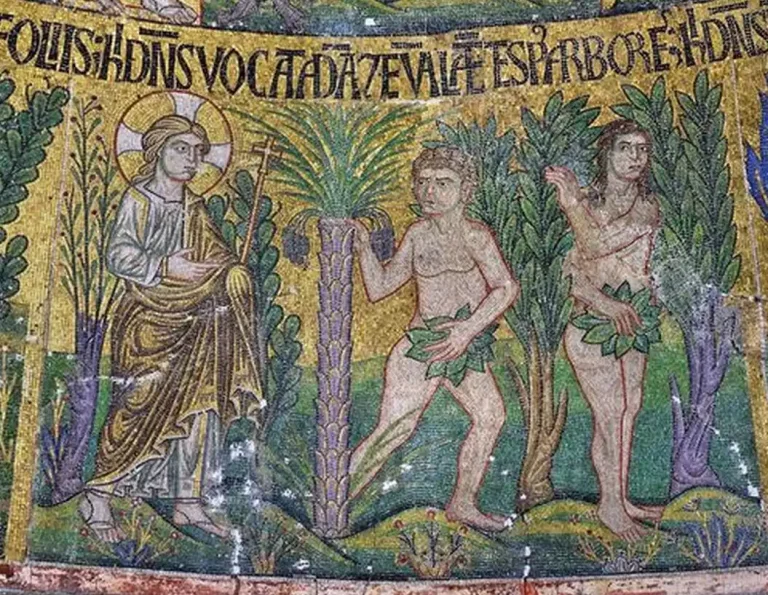
The Book of Genesis, the first book of the Hebrew Bible and the Christian Old Testament, stands as a monumental work in religious literature. Traditionally ascribed to Moses, its exact authorship remains a topic of scholarly debate. Genesis, dated from the 6th to the 5th century BCE, forms the foundation of both Jewish and Christian beliefs, narrating the creation of the world, the early history of humanity, and the origins of the Israelites.
The Creation Narrative and its Significance
The Book of Genesis opens with the iconic creation narrative, encapsulating a series of divine acts over six days, leading to the Sabbath, the day of rest. This narrative sets a precedent for the Judeo-Christian concept of a weekly day of rest and worship. The portrayal of a singular, omnipotent creator God in Genesis significantly influenced monotheistic thought.
In the creation story, the sequential order of events—light, sky, land, vegetation, celestial bodies, animals, and finally humans—reflects a structured universe brought into existence by a deliberate, purposeful deity. The emphasis on humans being created in God’s image conveys a profound sense of human dignity and responsibility within creation.
The narrative further delves into the Garden of Eden, introducing Adam and Eve, and the consequential themes of temptation, fall, and the loss of innocence. This part of Genesis has been interpreted in various ways, symbolizing the transition from a state of naive innocence to the complex reality of moral consciousness.
Additionally, the Book of Genesis addresses fundamental existential questions and portrays a universe grounded in goodness and order, yet vulnerable to human actions. It serves as a cornerstone for understanding the relationship between God and humanity, setting a narrative tone for subsequent biblical texts.
As the first book of the Bible, Genesis provides vital context for the rest of the biblical story, establishing key themes of creation, fall, redemption, and covenant that resonate throughout the Judeo-Christian tradition. Its narratives have profoundly shaped religious, ethical, and philosophical thought, making it a subject of enduring interest and study.
The Patriarchal Narratives and Their Legacy
The Book of Genesis transitions from the creation accounts to the patriarchal narratives, encompassing the stories of Abraham, Isaac, Jacob, and Joseph. These narratives are pivotal in understanding the origins and early development of the Israelite identity. Abraham’s journey, initiated by a divine call, marks a significant turn, emphasizing faith and obedience to God. The covenant with Abraham establishes a recurring theme in Genesis and the Bible: the idea of a chosen people and a promised land.
Isaac and Jacob, Abraham’s descendants, continue this legacy, facing their own trials and triumphs. Jacob’s story, including his dream of a ladder to heaven and his struggle with an angel, adds a mystical dimension to Genesis. The narrative of Joseph, sold into slavery by his brothers and rising to power in Egypt, introduces themes of forgiveness, providence, and the interplay of human and divine actions in history.
These narratives collectively underscore the complex relationship between humans and God, highlighting themes of faith, covenant, and the consequences of human choices. Genesis ends with the Israelites in Egypt, setting the stage for the Exodus story.
The Book of Genesis, through its rich narratives, lays the foundational themes for the Hebrew Bible and Christian Old Testament. It presents a vivid tapestry of creation, human origin, divine promise, and the complexities of faith and morality. Its influence on religious thought, ethics, and cultural narratives is immeasurable, making it a timeless piece of spiritual literature.
References
- Alter, Robert. The Five Books of Moses: A Translation with Commentary. W.W. Norton & Company, 2004.
- Blenkinsopp, Joseph. The Pentateuch: An Introduction to the First Five Books of the Bible. Anchor Bible Reference Library, 1992.
- Friedman, Richard Elliott. The Bible with Sources Revealed. HarperOne, 2005.
- Wenham, Gordon J. Genesis 1-15: Word Biblical Commentary. Word Books, 1987.
